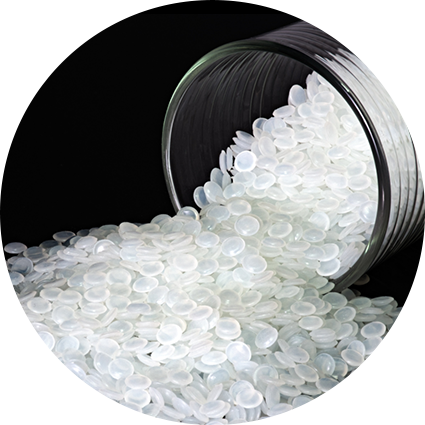Against the backdrop of increasingly severe global plastic pollution and carbon emissions, a green revolution in materials science is quietly taking place. Bio Based Environmentally Friendly Resin, as the core carrier of this revolution, is rapidly moving from the laboratory to industrialization, providing a clear path to a sustainable future for the manufacturing industry. It is not only a substitute for traditional petroleum based plastics, but also represents a new environmental concept from source to end.
Green genes and low-carbon origins: the fundamental shift from "black oil" to "green carbon sink"
The uniqueness of bio based environmentally friendly resins stems from their fundamental raw material selection. Unlike traditional petroleum based resins that rely entirely on fossil fuels, it mainly comes from renewable biomass resources such as starch and sugars in plants like corn, cassava, and sugarcane, or non grain biomass such as cellulose and lignin.
This transformation has brought two core environmental advantages:
Reducing dependence on fossil fuels: Reducing the consumption of non renewable petroleum resources, enhancing national energy security and material supply chain stability.
Carbon Neutrality Potential: Plants absorb carbon dioxide through photosynthesis during their growth process, theoretically offsetting the carbon emissions from resin production, forming a shorter carbon cycle and significantly reducing the carbon footprint of the product.
The perfect balance between outstanding performance and environmental characteristics
Many people have the misconception that eco-friendly materials mean compromising performance. However, advanced bio based environmentally friendly resins have completely broken this bias. Through modern biochemical synthesis and modification techniques, it can not only achieve but also surpass the performance of traditional petroleum based resins in some aspects.
Comparability of performance: With excellent mechanical properties, heat resistance, and processing adaptability, it can be directly applied to existing injection molding, extrusion, and other equipment without the need for large-scale production line transformation, easily achieving green transformation.
Environmental friendliness: This is its core value. In addition to renewable raw materials, many bio based resins also have biodegradability (depending on specific types and conditions), which can ultimately decompose into carbon dioxide and water in specific environments, greatly alleviating the problem of "white pollution" and reducing pressure on natural ecosystems.
Wide application: Empowering green transformation for thousands of industries
The application field of bio based environmentally friendly resins is expanding at an unprecedented speed, becoming a key material for brands to practice ESG (environmental, social, and governance) concepts and create green products.
Packaging industry: food packaging film, transparent meal boxes, beverage bottles, environmentally friendly handbags, etc. Meet the huge demand of consumers for safe, non-toxic, and biodegradable packaging.
Consumer goods field: mobile phone cases, electronic product liners, toys, daily household goods, disposable tableware, etc. Assist brands in enhancing the green image and market competitiveness of their products.
Textile fibers: Developing bio based environmentally friendly fibers for the production of sustainable clothing and textiles.
Automotive and electronics: used for manufacturing interior parts, non core structural components, etc., to help achieve the goals of lightweight and low-carbon automobiles.
Why are top brands turning to bio based environmentally friendly resins?
Responding to policies and market demand: The global "plastic ban" and carbon tax policies are increasingly tightening, while the new generation of consumers highly favor environmentally friendly brands. The use of biobased materials is a dual need to address regulation and capture consumer minds.
Shaping brand image and value: The use of this material is a powerful proof of brand social responsibility, which can tell a touching "green story" and create a differentiated high-end brand image.
Layout future supply chain: Fossil resources will eventually be depleted and prices will fluctuate greatly. Investing in renewable biobased materials is building a more stable and resilient green supply chain system for the future, and is a strategic layout for the long-term development of enterprises.
Overview of Core Characteristic Parameters
| Performance Parameter |
Description |
| Product Name |
Bio-Based Environmentally Friendly Resin |
| Core Material |
Renewable biomass |
| Key Characteristics |
Renewable, Low-Carbon/Carbon Neutral, Partially Biodegradable |
| Performance |
High mechanical properties, Good heat resistance, Excellent process adaptability |
| Eco-Certifications |
Internationally recognized certifications |
| Application Fields |
Green packaging, Sustainable consumer goods, Eco-textiles, Automotive & electronic components |










